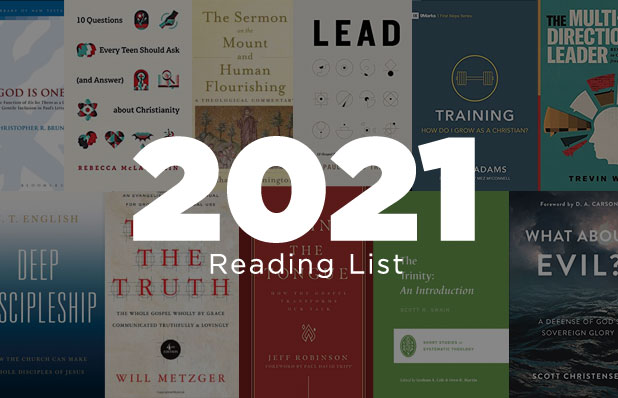
Josh's Picks
 Lead: 12 Gospel Principles for Leadership in the Church
Lead: 12 Gospel Principles for Leadership in the Church
by Paul David Tripp
Tripp wrote this book out of his experiences of counseling pastors and/or churches through ministry failure. I found the principles in this book so helpful we read through it as elders as well as with my monthly small group for Senior Pastors. Tripp uses gospel principles to help churches understand how leadership cultures were created that allowed leaders to get to such unhealthy places even as their churches grew numerically.
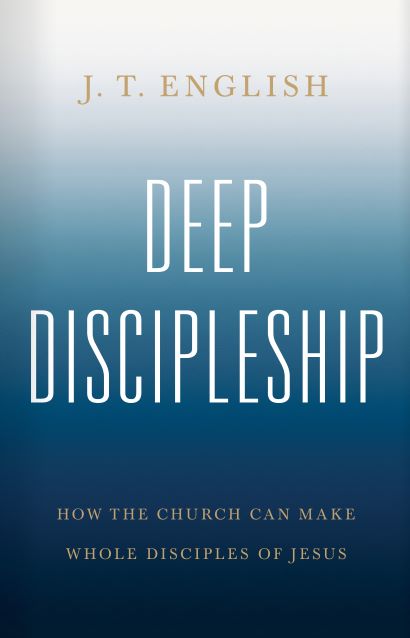 Deep Discipleship: How the Church Can Make Whole Disciples of Jesus
Deep Discipleship: How the Church Can Make Whole Disciples of Jesus
by J. T. English
Over the last decade, most churches have chosen either to offer classes to equip saints for works of ministry or they have chosen to provide community groups. J.T. explains how he helped lead The Village Church to take a both/and approach to making disciples. This book helped gives us language to describe our mission as well as providing helpful categories of the kinds of topics discipleship courses need to cover.
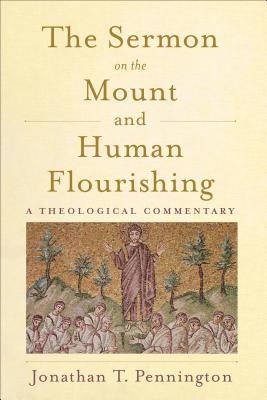 The Sermon on the Mount and Human Flourishing: A Theological Commentary
The Sermon on the Mount and Human Flourishing: A Theological Commentary
by Jonathan Pennington
We picked this title up in preparation for our series on the Sermon on the Mount. I found his explanation of the word for blessed in Matthew 5 as referring to human flourishing to be fundamental to our understanding of this text as well as his explanation of perfection as speaking of “whole-hearted devotion.”
 The Multi-Directional Leader: Responding Wisely to Challenges from Every Side
The Multi-Directional Leader: Responding Wisely to Challenges from Every Side
by Trevin Wax
The last couple of years have been fraught with friction on every front outside of the church. We’ve felt these disagreements impact our local church life as well, creating a stronger sense of tribalism turning groups of Christians and churches against one another concerning presidential candidates, vaccines, facemask policies, race, CRT, etc. Trevin offers some helpful categories for thinking through these difficult topics.
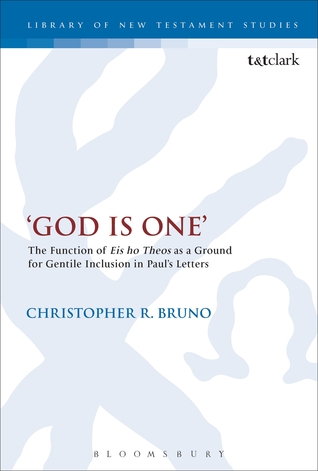 ‘God is One’: The Function of ‘Eis ho Theos’ as a Ground for Gentile Inclusion in Paul’s Letters
‘God is One’: The Function of ‘Eis ho Theos’ as a Ground for Gentile Inclusion in Paul’s Letters
by Christopher Bruno
I had not put enough thought into the verses faithful Jews have declared each morning when they have woken up for at least 2,000 years. Bruno introduces the Shema from Deuteronomy 6, explaining it in its original context, demonstrating how “God is one” has been historically interpreted, exploring other Old Testament texts that appeal to the Shema, and explores how Paul uses it in Romans and Galatians. This is well-written but he appeals to a number of languages from his research and makes technical observations where necessary. This dense work may not be for everyone, but the payoff is great for those who put in the work.
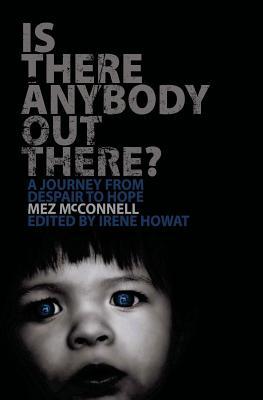 Is There Anybody Out There?: A Journey from Despair to Hope
Is There Anybody Out There?: A Journey from Despair to Hope
by Mez McConnell
Mez started 20Schemes, a ministry our church supports that plants churches in the poorest communities of Scotland. I’m embarrassed to say that I’m just reading this short book on his conversion. I struggled to put the book down because it’s so compelling. His writing felt like a sanctified J. D. Salinger with a gripping story of God’s grace rescuing a hardened sinner to himself and then using him to make disciples of others like him growing up in poor communities.
 In My Place Condemned He Stood
In My Place Condemned He Stood
by J.I. Packer & Mark Dever
This book unpacks the doctrine of Penal Substitutionary Atonement. Mark Dever, J. I. Packer, Al Mohler, and Ligon Duncan each contributed essays aimed at clarifying the central meaning of the cross. All of the essays are helpful. Tim Keller says, “The essays in this volume by J.I. Packer are some of the most important things I have ever read.” I’d agree that this is Packer at his finest. If you are looking for something to prepare your heart for Good Friday and Easter this year, or simply want to better understand what Jesus has accomplished for his people, pick up a copy of this book and be encouraged.
 Training: How Do I Grow as a Christian?
Training: How Do I Grow as a Christian?
by Isaac Adams
Adams wrote this book with the new believers he grew up with in mind. I found this to be a great resource for anyone who has come to Christ but did not grow up in a Christian home. The writing is clear, concise, accessible, and sound.
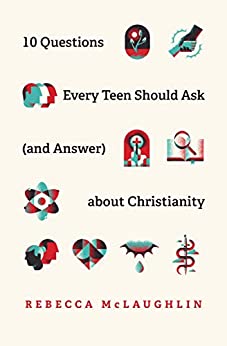 10 Questions Every Teen Should Ask (and Answer) about Christianity
10 Questions Every Teen Should Ask (and Answer) about Christianity
by Rebecca McLaughlin
Mal read this with his son Deacon to prepare him for high school. I followed his lead and did the same with my son Benjamin. If you are looking for resources to help you disciple your teenager and provide a good entry point to discuss important topics facing our kids today, we’d recommend this resource as helpful fodder.
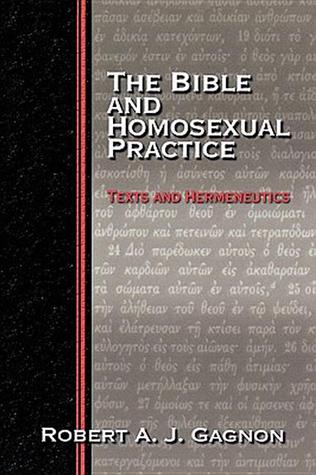 The Bible and Homosexual Practice: Texts and Hermeneutics
The Bible and Homosexual Practice: Texts and Hermeneutics
by Robert Gagnon
Gagnon's work is critical to the discussion of homosexuality in both secular and Evangelical circles. Gagnon traces the historical evidence for how various ancient cultures viewed homosexuality before exegeting important Old and New Testament texts to arrive at a biblical view of homosexuality. It is long. 520 pages. It is dense. But his research and writing are clear and compelling. If this is too long, Kevin DeYoung has written What does the Bible Really Teach About Sexuality? which abridges some of the content of Gagnon’s work. We also recommend Sam Allberry’s Is God Anti-Gay and Rossario Butterfield’s True Confessions of an Unlikely Convert.
Stephen's Picks
 Tell the Truth: The Whole Gospel Wholly by Grace Communicated Truthfully Lovingly
Tell the Truth: The Whole Gospel Wholly by Grace Communicated Truthfully Lovingly
by Will Metzger
Evangelism is not something only reserved for Billy Graham, Kirk Cameron, and the super extroverted. All Christians, whether introverted or extroverted, are called to participate in evangelism. However, many of us fear personal evangelism for a number of reasons. We fear rejection – we fear we might offend others – or simply put, we fear we won’t know what to say. Metzger encourages his readers to go the extra mile in personal evangelism. He introduces readers with an overview of the gospel of Jesus Christ, writes extensively on how God’s grace is for all people, and concludes with effective ways to communicate the gospel to others. Metzger also places an emphasis on the necessity to urge others to respond to the gospel of Jesus Christ and explains why this step is often neglected in personal evangelism. In addition, there are a number of great resources and helpful tools in the appendices. I’ve read a number of books on evangelism and this book is my go-to book for sharpening my skills and encouraging my soul to practice personal evangelism.
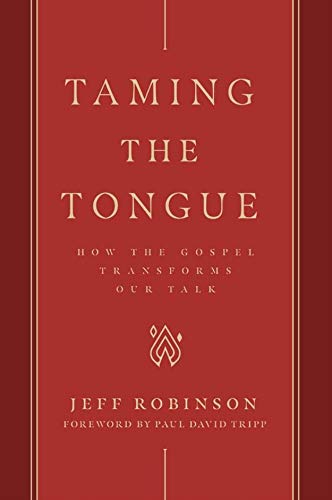 Taming the Tongue: How the Gospel Transforms Our Talk
Taming the Tongue: How the Gospel Transforms Our Talk
by Jeff Robinson
Robinson writes, “If the average person speaks between 10,000 and 20,000 words each day, then we are looking at 10,000 to 20,000 opportunities to sin.” Wow! I’m sure most of us have not considered that every time we open our mouths we are in danger of committing sin. Personally, I’m a fan of talking, and that is why I read Taming the Tongue. Robinson does an amazing job of providing his readers with many passages of Scripture to reflect on regarding our speech. He also shares personal illustrations, provides abundant references to help illustrate his points, and he gives readers much thoughtful and careful insight into how to carefully manage the many words that spew from our mouths. Taming the Tongue is a short, enjoyable, and impactful read to help any Christian of any age tame the tongue.
Mal's Picks
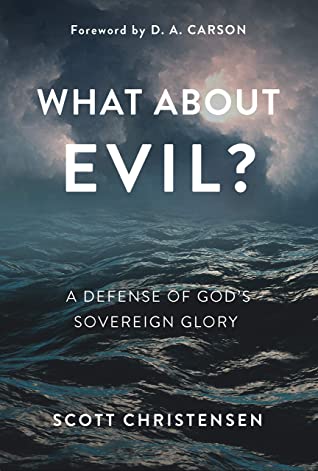 What About Evil? A Defense of God's Sovereign Glory
What About Evil? A Defense of God's Sovereign Glory
by Scott Christensen
Christensen makes a compelling case for how Christianity uniquely provides a satisfactory response to the problem of evil. No theodicy (a positive case for God's goodness and sovereignty) can solve every potential question. But this theologically sound, pastoral book points us to the metanarrative of Scripture where we find that "the unsuffering God defeats suffering in the world by coming into the world as one who suffers."
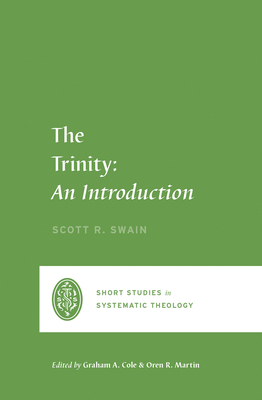 The Trinity: An Introduction
The Trinity: An Introduction
by Scott Swain
This is a go-to resource for an introductory, devotional examination of the doctrine of the Trinity. God is one in essence and three in person: this can be difficult to grasp! Swain's brief, clear book is uncompromising on accuracy but not unnecessarily complicated. He deftly engages with Scripture and church history and firmly corrects errors that seem to crop up generation after generation.